Lorient: The international fleet of offshore sailing gathers in the south of Brittany. Twelve teams from nine nations are ready for the premiere of The Ocean Race Europe. The 2000 nautical miles (3,700 kilometres) race will take the teams from Lorient/France to Genoa/Italy. The two fleets in the Imoca and VO65 classes will sail three legs and two Coastal Races to determine the winners of this first edition of this race. And right in the middle of the action of the top teams in the Imoca class: Offshore Team Germany (OTG). For the crew with the two Germans Robert Stanjek and Phillip Kasüske as well as the Briton Annie Lush and the Frenchman Benjamin Dutreux, it is a milestone on the way to the world race in 2022/23. They sail with the „Einstein“, the only non-foiler in the Imoca fleet, against yachts of the most modern generation. As onboard reporter, Felix Diemer will provide photo and video material from on board. The starting signal will be given on Saturday, 29 May, at 1.45 pm.
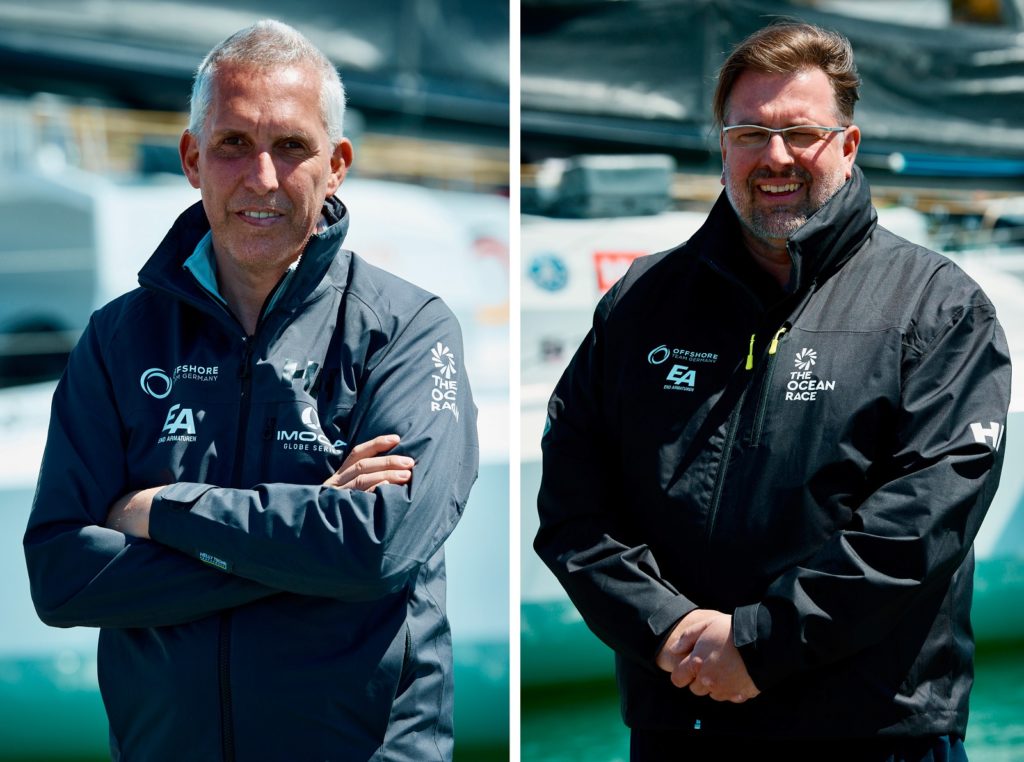
It has been five years since OTG, founded by CEO Michael End and team manager Jens Kuphal, bought the ex-„Acciona“ on Mallorca. Since then, the Imoca has been completely refitted by Joff Brown’s team and was re-christened „Einstein“ two years ago during Kieler Woche 2019. After participating in the Rolex Fastnet Race 2019, the yacht is now ready for its first big appearance. As skipper, Robert Stanjek (40) will lead the team over the next three weeks on the Atlantic and Mediterranean legs. He will be assisted by two-time circumnavigator Annie Lush and current Vendée Globe ninth-placed Benjamin Dutreux, two international offshore greats, as well as Phillip Kasüske, who will be throwing all his Olympic Finn class power into the action. „I am happy that we managed to put the team together like this. We wanted to bring together the combination of different schools of sailing: the experience from the Olympic classes, from the Ocean Race and from the Imoca class. It is the right way. There is important input coming from all areas. Annie and Ben have great mileage, Phillip and I bring the intensive training from Olympic classes. The key thing is that the team functions ego-free. And the experience from the past training sessions is very good,“ says Robert Stanjek.
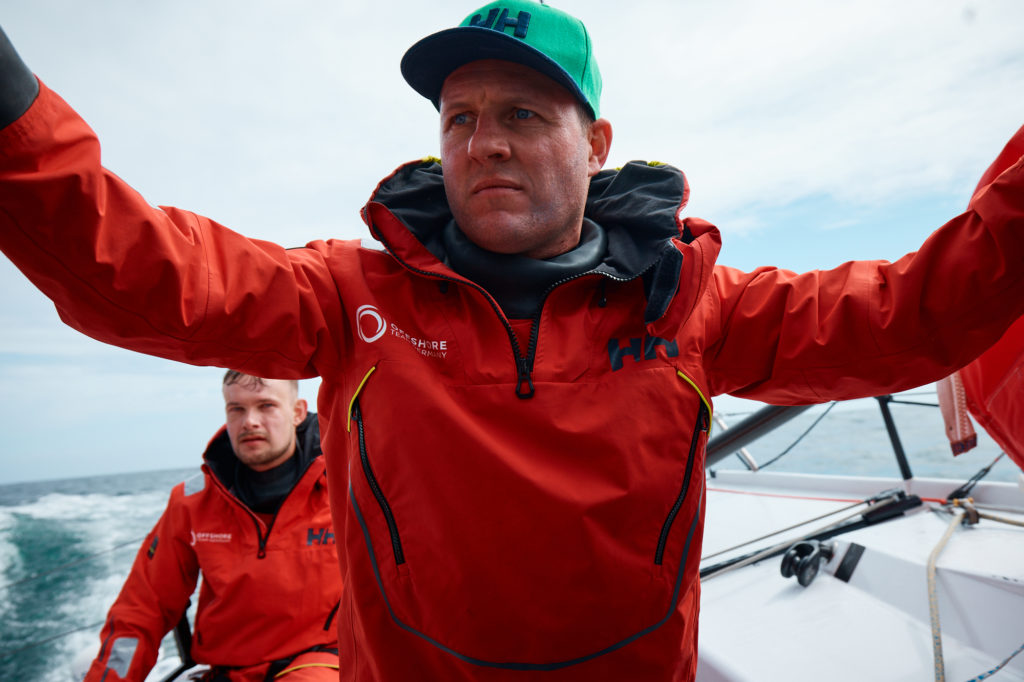
The young wild one on board the „Einstein“ is Phillip Kasüske (26). He is supposed to bring the horsepower on board. His strength will be required at the grinder, but his sensitivity will also be required at the helm of the yacht: „I have a very precise idea of what physical and athletic challenges await me. I bring this physicality with me, I’m used to it from years of working on the Finn. And as the youngest in the team, I am certainly the most resilient. But I can also steer well thanks to my Finn experience,“ says Kasüske. In the meantime, he knows the yacht very well: „I have done a few transfer trips, sailed in the Fastnet Race, spliced and introduced many lines on board. I feel like I have become a unit with ‚Einstein‘.“
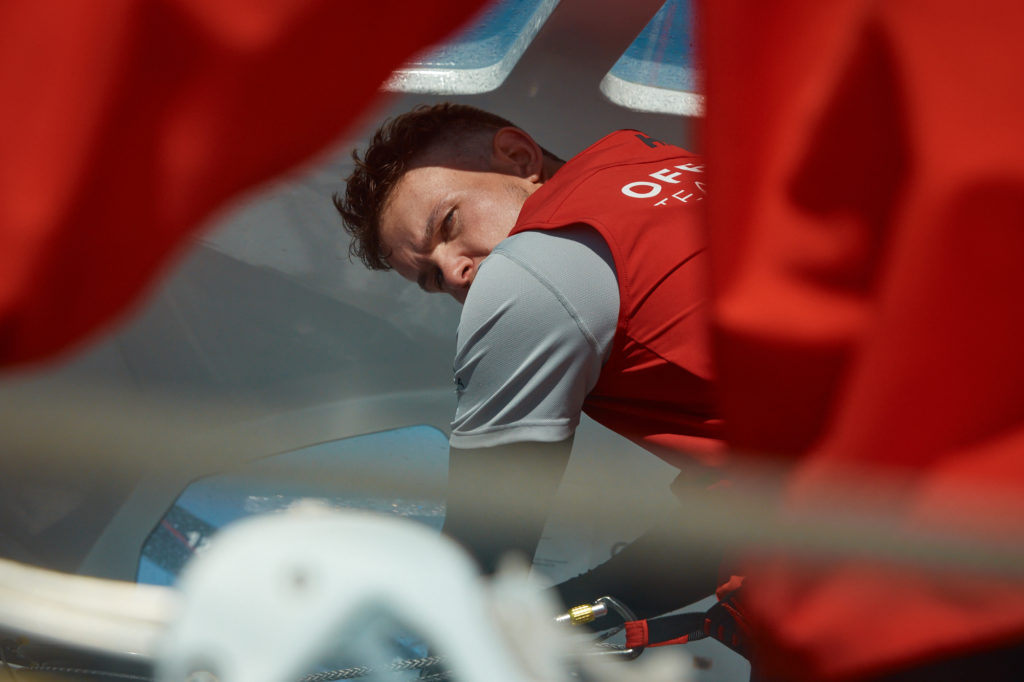
Pure happiness in the team is felt by Annie Lush (41), who has known Robert Stanjek for around 15 years now and is on board as pit to make sure that the right strings are pulled: „Fundamentally it feels like family! It’s a very exciting journey to be part of with the team, I think there is so much potential within the whole team, onboard, onshore and the management and I can’t wait to see where we can get to. It’s a very unique race with 4/5 people onboard an IMOCA. No-one has really done it before and so we’re yet to discover the best way to utilise everyone to get maximum speed and performance, whilst maintaining energy throughout the whole month. We also have a lot more to learn about Einstein, for as with many teams due to COVID we were not sailing her for a long time.“
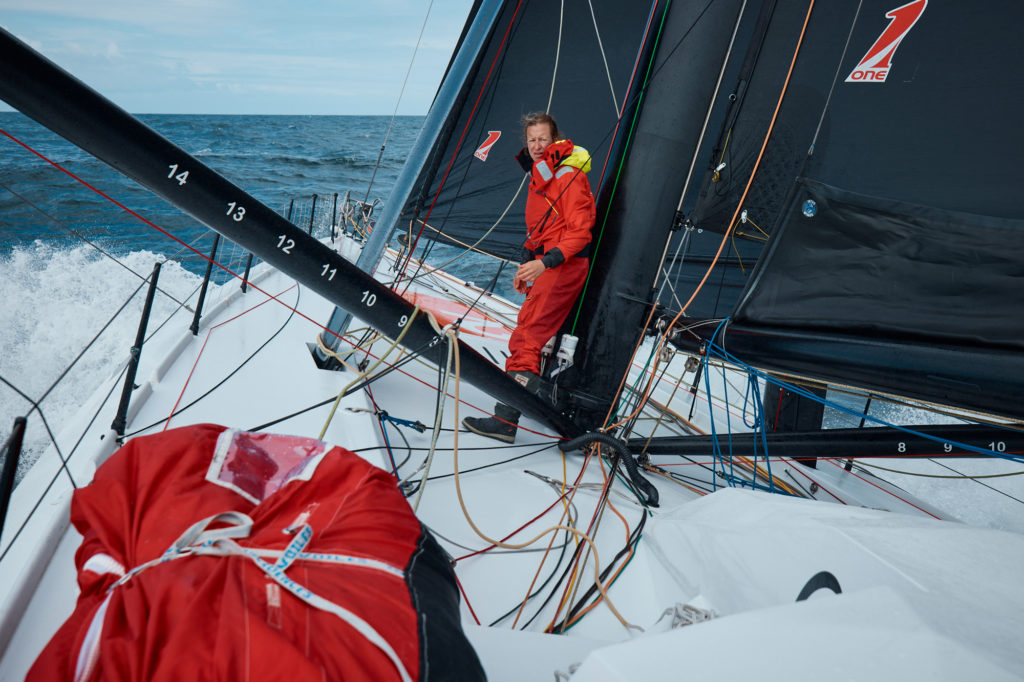
Benjamin Dutreux (31) joined the team as navigator a few weeks ago after his successful completion of the Vendée Globe, bringing routing experience to the team with his French team in the background. After the few weeks of intensive training, he states: „I am impressed by the team. In the first session we focused on manoeuvres, in the second on performance. During the race we still have to learn to communicate with each other, to manage our sleep time. But we have a great team with great sailors.“
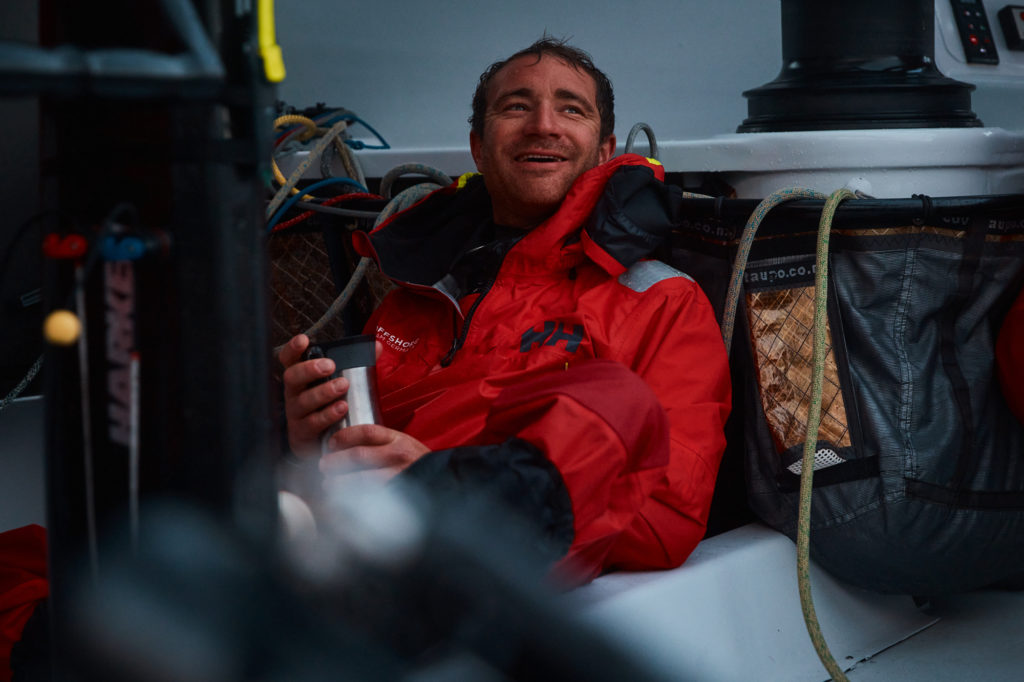
This successful team composition was a maxim of the team management around Jens Kuphal: „The most important thing is that the team comes together as a unit and crosses the start line in Lorient well prepared. In the course of the race, the situation will certainly improve even more.“ His excitement before the start is huge: „For Germany, it is the first time 20 years after the victory of the ‚Illbruck‘ that a German boat is on the line for The Ocean Race again. This is a great signal. The Ocean Race Europe is the perfect test for the big race next year. We will use this to prepare even better for the World Race.“
CEO Michael End can’t wait for the starting gun either: „It’s starting to get antsy. It’s a great sight to see the team, but also the yacht. White hull, black sails with the German colours: I’m thrilled. The DNA of the project is that we wanted to do something for Germany. And I think we have succeeded. We are sailing around the world – or Europe for now – with the claim ‚Made in Germany‘, which primarily touches on German businesses.“
It will be exciting to see how „Einstein“ holds its own against the modern Imocas without foils. „We don’t have the same weapon as other Imocas with foils. But we have small advantages under certain conditions. I think the best option for us is not to focus on the other boats, but to do our job,“ says Dutreux. And Annie Lush also adopts a wait-and-see attitude: „We are the only IMOCA competing without foils, but there are many variables for everyone, beyond foils in this race. I think we have the opportunity to progress quickly, we will be learning a lot every mile we sail, so making gains throughout the race will be the most important, which position that is in, we’ll have to wait and see!“
An expert view from the outside has been cast on The Ocean Race by German foil expert Martin Fischer. He sees the modern Imocas as having an advantage, but also said, „If light wind conditions prevail, then the foils become a disadvantage as they slow down too much. Upwind or stretches flat downwind become an advantage for a conventional yacht. Of course, in normal weather conditions, the latest generation boats are not expected to be beatable unless they take damage. But there are many options that allow the ‚Einstein‘ to achieve respectable results, and thus no reason not to go into the race optimistically.“
Skipper Stanjek has his sights firmly set on this line of march: „Setting the bar to the other teams is difficult in the current situation. But we will fight in the race. That’s a promise.“
